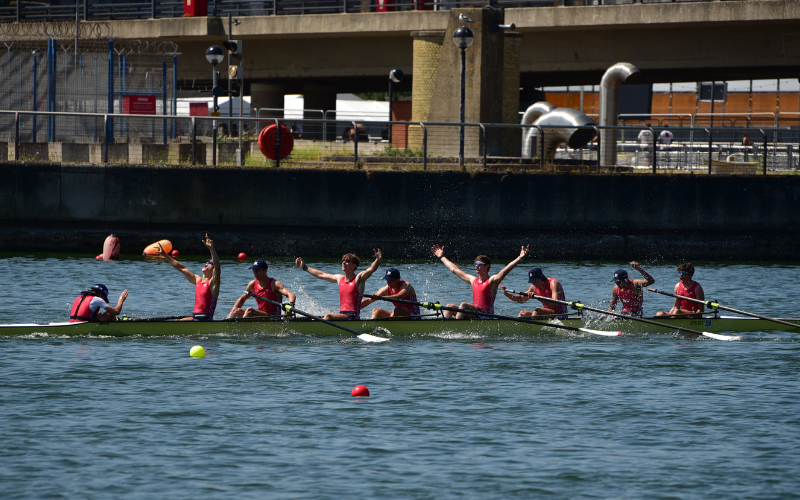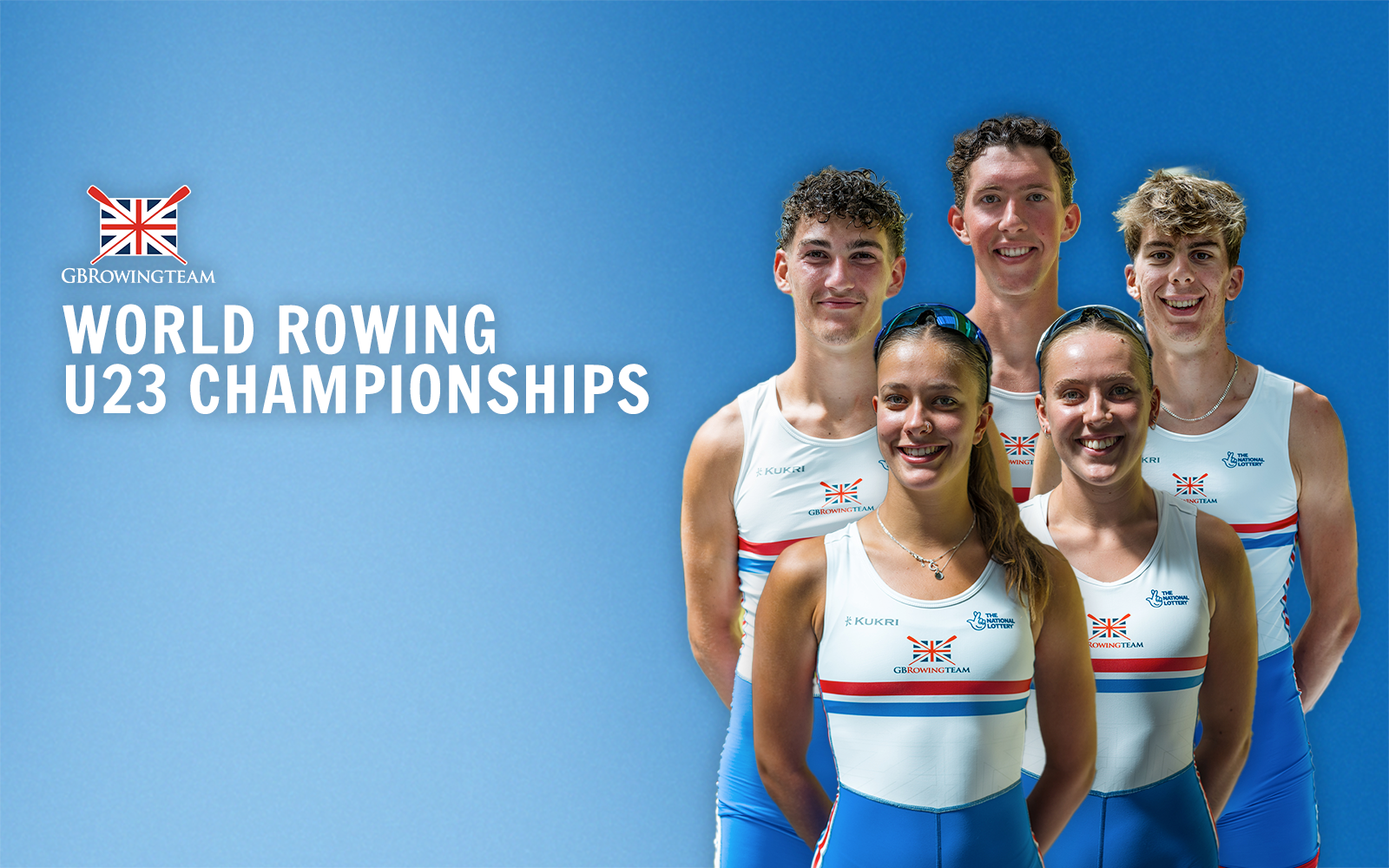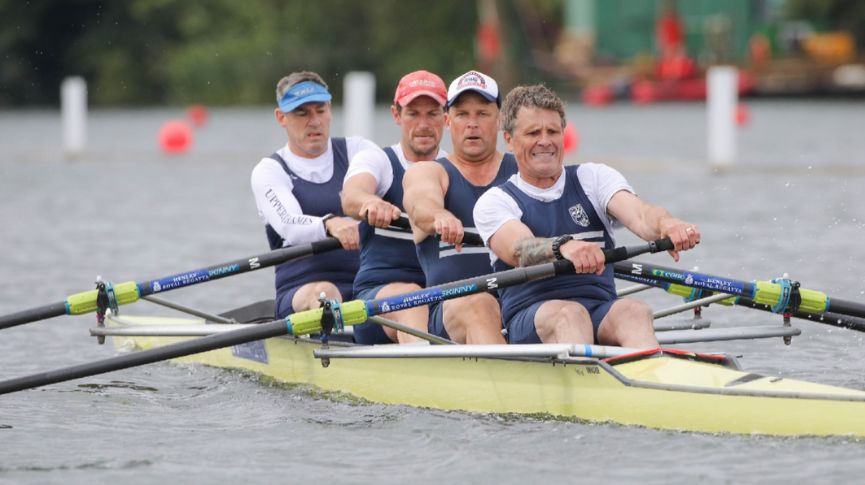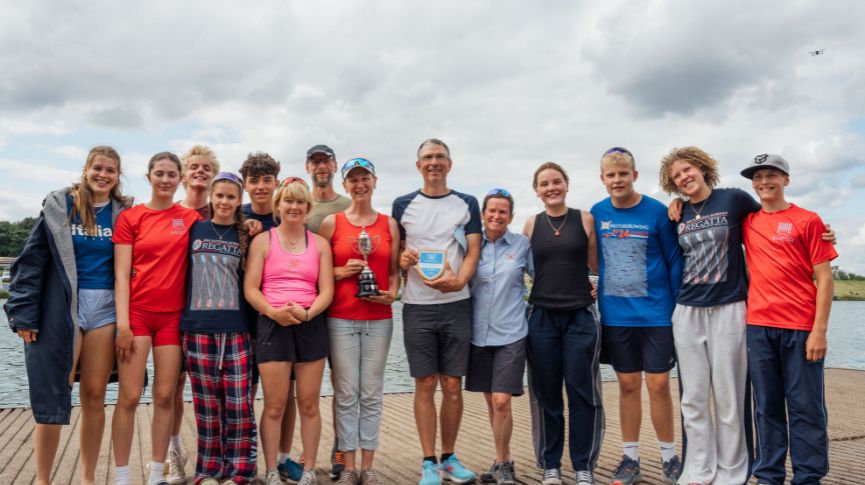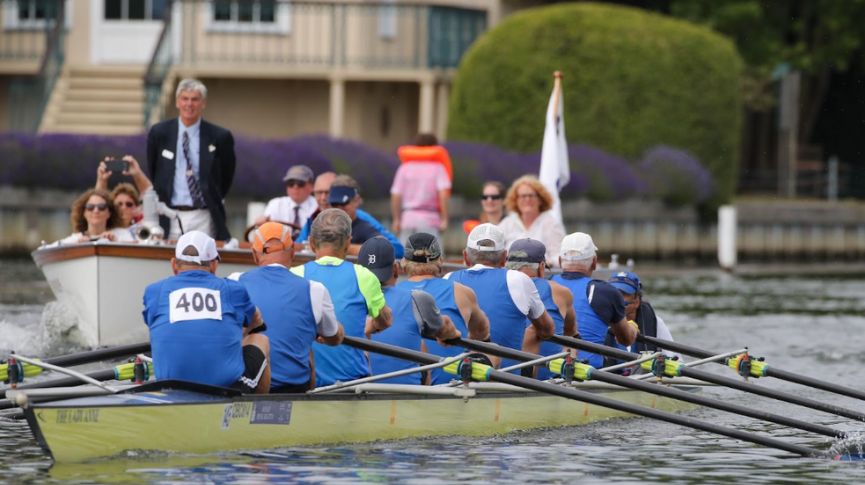‘It’s what’s happening in the clubs that’s going to make the biggest difference’
A recent webinar presented the research on diversity and inclusion in the rowing community. Read on to find out more
A special webinar was held on Tuesday 14 December with British Rowing Board member Liz Behnke, Ash Wyatt, Community Support Manager and Angela Westley, Head of Insight, sharing the findings from our survey on diversity and inclusion in rowing. Special guest Lauren Rowles, double Paralympic champion, also joined the panel, speaking passionately about her personal experiences of being involved in the sport.
Conducted earlier this year, British Rowing’s survey asked 1,904 people from our rowing community for their experiences and thoughts around diversity and inclusion. These included British Rowing members, non-members and 500 people from outside the sport. We also conducted 25 in-depth interviews with people from the rowing community. This work has been used to inform the development of Committed to Inclusion, a new Inclusive Sport Plan for rowing.
Setting the context for the webinar, Liz stressed that diversity and inclusion is very much about empowering people and respecting and recognising what makes them different.
She said: “To me, D&I is absolutely about getting people involved and engaged regardless of who they are – and why wouldn’t we want to do that?”
Lauren added: “Sport can change people’s lives and at the moment rowing isn’t reaching those communities where we could be changing people’s lives and showing them how incredible our sport is.”
The survey research overview
Overall, the research indicated that while about 10% of people are happy with how the sport is and don’t see a need to change it, the majority do want to see change and are behind the diversity and inclusion agenda.
“Only 9-10% of rowers are from lower socio-economic groups compared with 47% of the population”
In terms of the data, Angela highlighted areas where the rowing community has a broad mix.
“There’s a great diversity of age in the rowing community. There are not many sports where you can be on the same team as your Mum, your Dad, even your Granddad…
“We had 51% male, 48% female and 1% non-binary so a pretty good balance. Sexual orientation diversity showed that we have 12% who identify as non-heterosexual and this is in line with a very recent study on the LGB community in the population shared by Inclusive Employers.”
The biggest gap is in socio economic groups with only around 9-10% of rowers from lower socio-economic groups compared with 47% of the population, so there is a lot of work to do to reflect a broader mix of society here.
“When it comes to ethnic diversity there are only about 6% of rowers here and this compares to around 14% of the population so, again, we’re not representative.
“We also have a big over-index of people attending independent schools so there’s a lot more we can do to bring rowing to more state schools.”
Areas such as membership retention and a lack of female coaches and female leaders were also part of the findings, plus there is a real need for social casual rowing for people who can’t commit to lots of sessions a week or who want to row when it works for them.
See the full data presentation here.
Perceptions
The research also brought interesting insights into how the rowing community view our sport and how non-rowers see it. The top three words used by rowing community members to describe the sport were ‘fun’, ‘fitness’ and ‘teamwork’, in contrast to non-rowers who used words such as ‘elite’, ‘Boat Race’, and ‘Henley Royal Regatta’.
Angela said: “We need to look at how we can show non-rowers the other side of our sport.”
“How do we make people feel equal and feel included, so they don’t feel they stand out?”
Inclusivity
There were important messages on being inclusive within the research. Club culture varies from one club to another, and is usually set by those at the top and the committees.
Angela said: “It’s so important – we can’t emphasise this enough. Some clubs have a fantastic club culture and some not so much, so we want to get everyone feeling welcome in all clubs.
“It was obvious from some of the people I spoke to, that they just want to fit in and if they don’t then that’s when they feel uncomfortable. A key point is how do we make people feel equal and feel included, so they don’t feel they stand out?”
“For years, I just wanted to fit in with people… because I didn’t want to be the outcast in the group”
Lauren’s experiences
GB Para rower Lauren Rowles spoke about how she felt on hearing the report’s findings.
She said: “I remember it making me really emotional because I really related to it.
“As somebody who comes from very much a working-class background, I was a Birmingham girl who grew up not knowing anything about rowing. When I first started rowing seven years ago in the rowing team I had this thick Brummie accent.
“I was this young 17-year-old girl who turned up for her first session in a Nike hoody who didn’t have any lycra. I felt like I really stuck out like a sore thumb, and I was definitely very aware of that.
“For years, I just wanted to fit in with people, so I just became a rower and had no other part of my personality showing because I didn’t want to be the outcast in the group.”
Lauren realised the impact it was having on her mental health and though it would have been easier to walk away from the sport, she found the courage to be herself.
“Actually, it was my love for the sport and being on the water that brought me back to it and has led my journey since with my first world champs, my second world champs and my Paralympic gold medals… having more confidence has unlocked so many doors.”
While external perceptions of rowing are overshadowed by the Olympics, by Henley Royal Regatta and the Boat Race, as already mentioned, there are plenty of reasons to be positive.
Lauren added: “The community projects we have and the incredible people we have involved – it’s really given me this hope of where the future of the sport could go, and I hope that we can continue to highlight this going forward.
“It’s the 10% in our sport who are influencing it and who are the ones not sitting on this webinar – they’re the ones we need to target who don’t want to change the sport…”
“Fairlop RC are working with the Muslim Sports Association to get Muslim women rowing”
Club diversity and inclusive projects
The panel highlighted some of the fantastic projects that are happening up and down the country in all of the British Rowing regions.
Angela said: “There’s so many clubs that we could mention. I was really inspired by a lot of the material that I read from the survey, but the key thing is how we share it – we need to tell people that this is going on.
“There are examples of clubs working with refugees, for instance. World Class Start and the Pathways Team are doing some great work.”
Liz mentioned London Otters and their fantastic work around the LGBT and particularly, the trans community. Tees RC and Teesside University are working together to encourage the local Asian community to get involved.
She said: “Fairlop RC are working with the Muslim Sports Association to get Muslim women rowing – just because you wear a hijab doesn’t mean you can’t row.
“Trafford RC have changed their demographics from being a more male-dominated club to having 60% of women by shifting their culture and having a welcoming environment.”
Fulham Reach’s successes are well documented with their links to the prison population and there are some inspirational journeys around that group.
Approaches to adaptive and Para rowing
Talking about Stratford upon Avon BC, Liz said: “What I loved about their website was that it says, ‘We follow a basic principle of where there’s a will, there’s usually a way to get people rowing’. We need to think outside the box a little bit.”
Echoing these sentiments, Lauren spoke about how prospective adaptive rowers have a real battle to get into competitions and clubs.
“A rower on the team, Ben Pritchard, talks about accessibility being a mindset – and I truly believe that because in the Paralympic rowing team there are no barriers to what we do.
“We have this culture and attitude that whatever we need to do to get around the limitations, around our disabilities, we work through them, and problem solve. That mindset was where I felt most included in the sport.
“Having people who see past those limitations completely freed my life. It got me out of my chair and helped me accept my disability.
“If you can challenge your own unconscious bias and ask someone what they might need to be able to row, then they will tell you. The simplest things make the biggest difference to people – and asking questions – not being scared to – is the biggest way forward.”
“One of the best things we did was putting up a tent on the towpath and talking to people as they walked by”
Lea RC and I Belong
As a member of Lea RC, Ash is involved in I Belong, a mission to bring greater diversity to the adult membership at the Hackney-based club to better reflect the local community.
“After George Floyd’s murder and Black Lives Matters a group of us sat down at Lea,” related Ash.
“We wrote a strategy and a plan – we spoke to our members, our coaches and our board and asked if they were okay for us to do this and they were all very supportive.”
So, we looked at how people come into the club and decided to run shorter and more flexible learn to row courses instead of one big course every July. This meant that people could try rowing whenever they wanted to, rather than having to wait for the summer course.
“It’s all about making people welcome and celebrating the differences that make everybody unique”
“But the problem was that the people who wanted to come through our door weren’t really representative of our community, so we spent a lot of time doing outreach work.
“One of the best things we did was putting up a tent on the towpath and talking to people as they walked by. We made time to explain what we do and this worked really well.”
The next steps
Wrapping up the evening’s discussions, Liz said: “We’ve highlighted some of the issues we’ve found, but British Rowing aren’t the people who can make the absolute difference on the ground. We’ve created a strategy for rowing, and this is best delivered within the clubs.
“This is you – this is you as part of the rowing community. It’s very much about you taking ownership on the ground to change this. It’s what’s happening in the clubs that’s going to make the biggest difference.
“It’s all about making people welcome and celebrating the differences that make everybody unique.”
Questions
Thanks to everyone who watched the webinar and asked a question. There were some very insightful questions and we have shared our replies here.
Get involved
1 – Read our Committed to Inclusion strategy here which was shaped from our survey’s findings.
2 – Love Rowing – our mission is to challenge and change the face of rowing. We create accessible and inclusive rowing programmes for communities that are currently underrepresented in the sport, showing the life-changing impact rowing can have. Find out more by signing up to the next Love Rowing newsletter here.
3 – What can your club do? If you have a question or require some support, then email Ash and the team at [email protected] and we’ll try to help.


